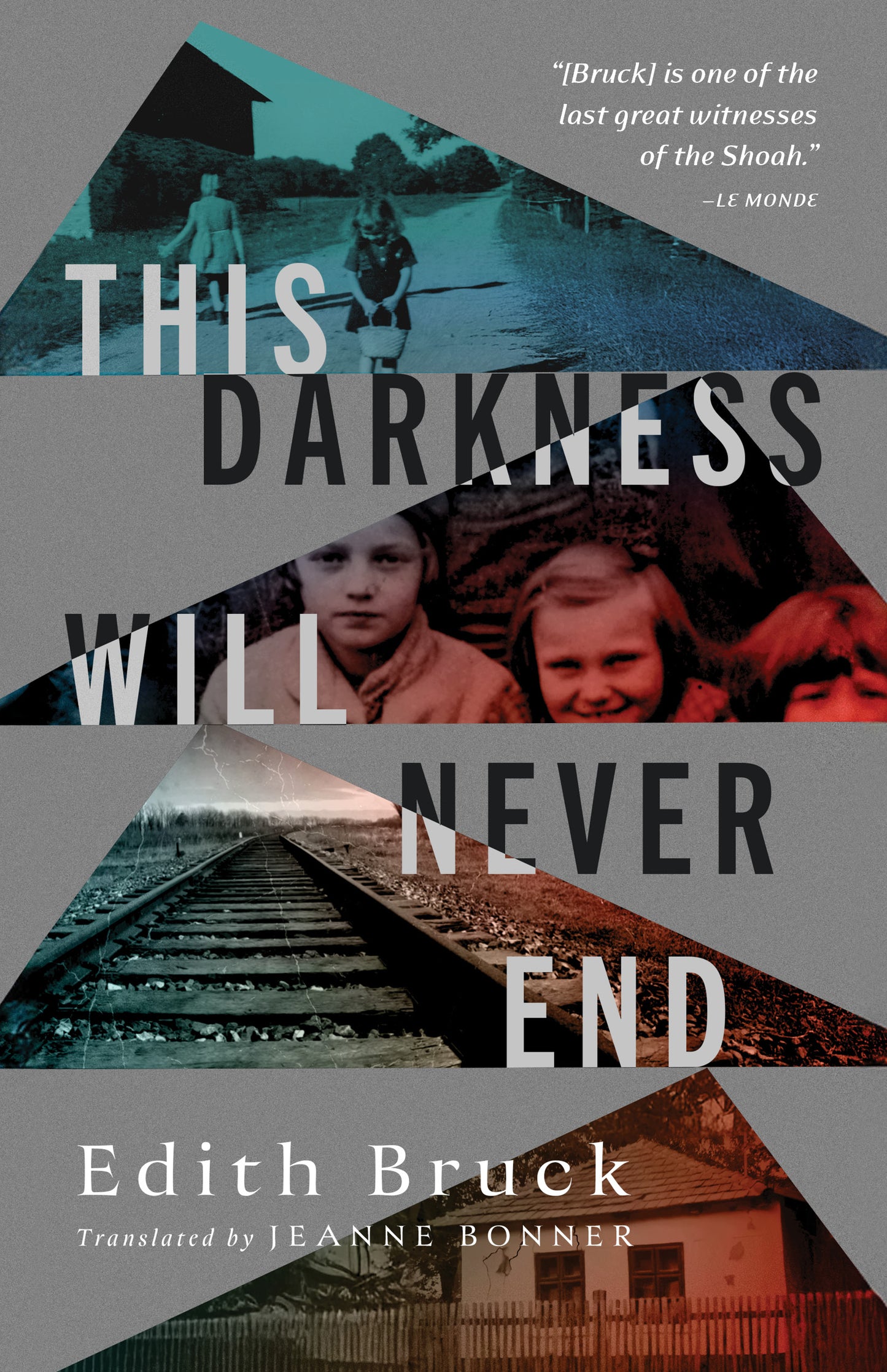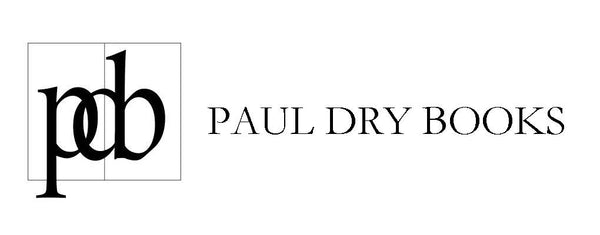This Darkness Will Never End
This Darkness Will Never End
Edith Bruck
Couldn't load pickup availability
187-page paperback / 5.5" x 8.5" / ISBN 9781589882010
Publication Date: 4/22/2025 (now shipping)
The stunning short story collection—available in English for the first time—that established Edith Bruck as a major figure in Italian literature.
This Darkness Will Never End, the first short story collection by the Hungarian-born author Edith Bruck, was published to acclaim in Italy in 1962. After World War II, Bruck, a Holocaust survivor, settled in Rome where she wrote her fable-like stories, recounting the lives of poor Jewish families in Europe before, during, and immediately following the war.
In the title story, believed by some film scholars to have inspired the Oscar-winning movie Life Is Beautiful, a young girl shepherds her blind, sickly brother as they are deported. In “Matzoh Bread,” a child gets a painful glimpse of anti-Semitism when a friend tells her a legend about the unleavened bread Jews eat at Passover. In one of the more colorful stories, a hapless father whose business partners swindle him over a horse only tells the truth when he’s talking in his sleep.
Beautifully translated from the Italian by Jeanne Bonner, these stories offer a glimpse into a bygone world. They testify to the resilience of survivors like Bruck, whom Italian critics initially compared to Anne Frank, deeming her the writer Anne would have become had she survived.
PRAISE for THIS DARKNESS WILL NEVER END:
"[M]asterful . . . The stories are poignant and crafted with subtle humor, compassion, and unsparing observations."
—Foreword Reviews
"Bruck’s prose is direct and spare, free of sentimentality, and Jeanne Bonner’s translation preserves this clarity . . . With this collection, written at the beginning of her illustrious career, Bruck delivers an elegy—for childhood, for parents lost too soon, and for a world that once existed."
—Centro Primo Levi
“Edith Bruck’s spare, haunting, fable-like stories reveal the enduring echoes of history through narratives of survival, loss, and resilience. Bonner’s sensitive, masterful translation of this landmark collection preserves the poetic soul of Bruck’s prose, ensuring that this vital work will find its rightful place in world literature.”
—Jenny McPhee, translator of Family Lexicon by Natalia Ginzburg
"This Darkness Will Never End subtly draws us into the complex emotional world of growing up in wartime. These are finely wrought, meticulously translated stories about living through both everyday and extraordinary hardship—Bruck, unsparing and insightful, is a major Jewish voice."
—Jamie Richards, winner of the National Translation Award in Prose, and translator of Adua by Igiaba Scego
"The gifted translator Jeanne Bonner has done a great service by bringing us these extraordinary stories by the Hungarian writer Edith Bruck, a Holocaust survivor who lived in Rome after the war; she offers vivid and poignant stories about the experiences of Jewish families whose lives were overturned during the war. Bruck’s book is a splendid and vital addition to the body of Holocaust literature by women."
—Lynne Sharon Schwartz, author of Disturbances in the Field
"This Darkness Will Never End, the title of Jeanne Bonner’s expert English rendering of Edith Bruck’s first short story collection, could well stand for this Holocaust survivor’s entire body of writing. While her ordeal in the camps is never explicitly evoked in these stories, it hovers over them in the 'dark' hints of an Hungarian peasant culture steeped in anti-Semitism long before the deportations of 1944. Amidst these fictionalized first person narratives, many of them set in her native village of Tiszabercel, Bruck gives voice to the poignance of the local Jewish plight (particularly that of young women) before the Nazi Final Solution, while later stories center on incidents set in such diasporic locations as Germany, Greece, and Israel. As Jeanne Bonner aptly points out, while Bruck’s abundant writings have been known and celebrated in Italy, the Anglophone world has had minimal access to them. This beautiful translation serves as a vital step in dispelling the darkness surrounding her quiet, yet urgent, Holocaust witness."
—Millicent Marcus, Sarai Ribicoff Professor of Italian Studies, Yale University
PRAISE for EDITH BRUCK'S OTHER BOOKS:
Bruck's “spare prose captures the raw terror and bitter sorrow of the camps. She also finds lyrical beauty and unexpected joy in moments of calm. Reading her work is like breaking bread with her, seeking light amid the shadows cast by history.”
—Wall Street Journal on Lost Bread
“Riveting.”
—Jewish Book Council on Lost Bread
“Unforgettable testimony.”
—Primo Levi on Who Loves You Like This?
“Bruck’s frequent focus on the period following the liberation of the camps is part of what makes her work original and compelling.”
—Boston Globe
“One of the last great witnesses of the Shoah.”
—Le Monde (France)
“All Edith Bruck’s life’s work is a testimony, and ultimately the extreme, desperate, word-filled effort to make the incomprehensible comprehensible.”
—Corriere della Sera Sette (Italy)
Also available as an e-book:
Amazon
Apple iTunes Bookstore
Google Play
Kobo
Edith Bruck has written more than twenty books of fiction, nonfiction, and poetry, many of which reflect her life-long commitment to Holocaust testimony, including Who Loves You Like This (1959, Italian edition; 2001, English edition, Paul Dry Books). She has twice been nominated for the Italian equivalent of the Pulitzer Prize, and her books have been translated into many languages including English, French, German, Dutch, Polish, Hungarian, and Hebrew. She lives in Rome.
Jeanne Bonner is a writer, editor and literary translator. Her essays and reporting have been published by the New York Times, Boston Globe, American Scholar, Longreads, Marketplace, NPR, and CNN. Bonner was a 2022 NEA literature fellow in translation. She lives in Connecticut.


